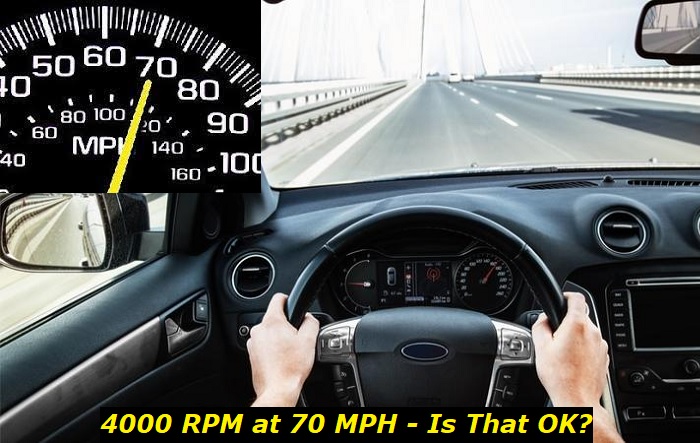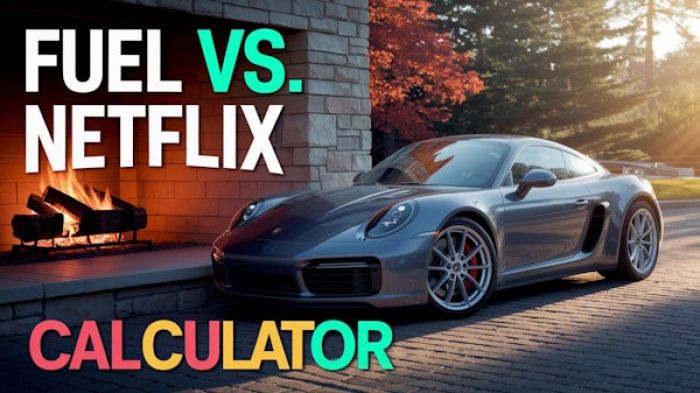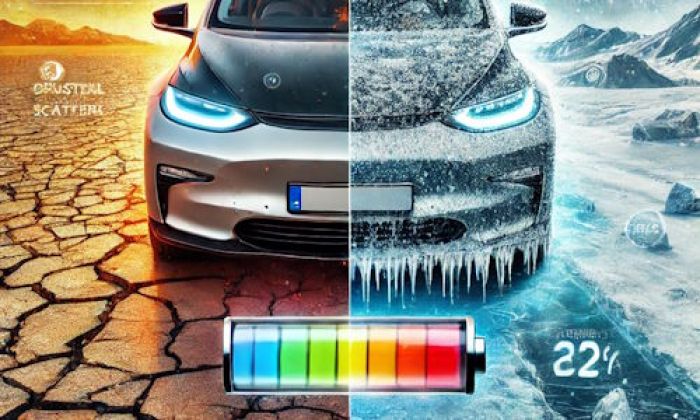If your car goes at 4000 RPM at the speed of 70 MPH, you may have problems with transmission slipping, wrong gear engaged, or TCU problems. But in some vehicles that are equipped with ridiculously small engines and aren't meant to be driven at high speed, this may be a normal situation. You may usually check it on forums as you shouldn't be the only person concerned with it.
Engine use issues highlights
- Level of importance:medium
- When done:driving the vehicle
- Cost of mistake:$250 - $3,500
- How to avoid:read driver's manual, learn more about the engine you have
- Consequences:inefficient driving, fatal engine issues
- DIY solutions:possible

What causes the engine to rev up to 4000 RPM at 70 MPH?
In very rare cases, this situation may be considered normal. For example, if you are in Europe and your vehicle is equipped with a 1-liter 3-cylinder non-turbocharged engine, you should expect it to work at very high RPM at high speed because it just doesn't have enough power to move the car so fast. So, the engine needs to get closer to its top-power RPMs to produce more horsepower for you.
But in 99% of cases, this will tell you about one of the possible problems that may cause the engine to rev up while the speed is left behind.
Here are the possible reasons for this:
1. Slipping transmission
This may happen to both manual and automatic transmissions, including CVT and DCT units. When the transmission is worn out, it may start slipping. It means you will notice less relation between speed and RPM. When the car goes uphill, the RPMs go up while the vehicle stays in the same gear and the speed may even fall down.
This happens when the clutch or the torque converter just can't ensure optimal transfer of torque and power from the engine to the transmission and later to the wheels. The situation is unpleasant and should be addressed as soon as possible because the transmission may get a fatal problem and you will not be able to drive the car anymore.
2. You are in the wrong gear
In this case, the transmission may have engaged the wrong gear or you may have forgotten to shift the manual transmission. For example, this is a very common situation for driving in the fourth gear while you need to engage the fifth gear on the highway. If it's the manual transmission, things are good for you - just engage the needed gear, and the problems are solved free of charge.
But in an automatic transmission, the application of the wrong gear means that there is a problem with some of the gearbox modules:
- clutch - in DCT units, the clutch may be the culprit of this issue;
- CVT failure - in CVT units, this may mean that the transmission is on the edge of dying;
- torque converter problems - in conventional automatic trannies, the torque converter may be the culprit;
- TCU - the transmission control module may develop a glitch and "forget" to shift to the needed gear;
- other modules - also, other parts and units of your transmission may have problems.
Also, you should check for some driving mistakes. For example, you may have applied D3 mode and now your automatic transmission doesn't shift higher than 3rd gear. Also, you may use the sport mode or manual mode in your transmission and it just doesn't shift without your command on the paddle shifters.
3. Wrong readings of speedometer or odometer
When your odometer shows 4000 RPM, it gets the readings from certain engine sensors. These sensors may go bad and send wrong readings, so the odometer will show incorrect RPM. You may listen to the engine and if you have enough experience with your vehicle, you may figure out if it's 4000 RPM or 3000 RPM. At 4K revs, the engine will be like jumping out of the engine bay.
Also, the speedometer readings may not be reliable. The vehicle gets the information about the speed from a certain set of sensors and one of them may have a glitch or something. Maybe, you are driving at 100 MPH and the 4K revs are OK, in this case. But the speedometer shows 70 MPH. Again, if you are an experienced driver, it will be hard to cheat you this way.
Is it bad to drive at 4000 RPM for a long time?
While some engines are made to work at high revolutions, the majority of modern engines won't like that. The common optimal RPM level lies between 2000 and 3000 for almost all engines. Smaller units will need to work at a higher level or revs just to supply the car with the needed power.
Driving at 4000 RPM in a sports car is completely OK. Its engine is designed to withstand those loads and it's just fine for it. But your average engine will have a high risk of failing if you drive it at 4000 RPM for a long time on the highway.
Here's what happens:
- at this speed, the engine works at the edge of its possibilities and produces a lot of power and torque;
- usually, this means that the load on some key parts of the engine is huge;
- also, it may overheat due to extremely fast movements of the pistons in the cylinders;
- lubrication becomes worse because the oil just doesn't catch up with the engine speed;
- also, the oil may lose its properties if this style of driving continues for a long time;
- vibrations of the engine are much worse than at 2500-3000 RPM;
- fuel consumption becomes worse, your gas mileage inevitably drops;
- overall engine wear and tear become much more significant.
So, these are the problems that may happen to your engine if you constantly drive it at 4000 RPM. Such an engine will certainly fail earlier than its average lifespan predicts. And you will need to invest a lot in minor repairs even when the engine is still low-mileage and fresh.
There are lots of other common problems like catalytic converter overheating, seals and gaskets misshaping, and high pressure of fluids that may lead to leaks.
What's the optimal RPM at 70 MPH?
You should control the RPM at a certain speed because it basically tells you if the vehicle is OK. So, most engines except bigger ones like (V6 and V8) will run at 2900-3200 RPM at 70 MPH. This is the most efficient engine speed for proper lubrication and the best fuel economy at the highest gear.
But there are exceptions, of course. A good V8 engine will only develop something like 2200 RPM at 70 MPH. Also, this depends on the transmission type. The older 4-speed transmissions will make the engine work at 2000 RPM at 70 MPH when at the highest gear. While the 8- or 9-speed automatic transmission may develop different levels of engine speed depending on the current gear.
If you are unsure about the optimal RPM at a certain car speed, you can check specialized forums. They will tell you whether you should worry or whether other owners have the same engine speed at 70 MPH.
How to drive on highways with the best gas mileage?
Engine speed is not the only factor you should pay attention to when driving on highways. You may know that two identical cars may show different MPG results after driving on the same highway and seemingly at the same speed. The problem is the driving habits.
Here are some tips that will improve gas mileage on the highway in your car:
- Use cruise control. When you use your foot to control the throttle, it's never really smooth. The foot moves up and down making the engine work in different modes. It usually leads to higher consumption.
- Get the engine speed down. If your priority Is fuel economy, you will likely want to go at 50-55 MPH and put the engine speed down to 2200-2500 RPM while the car is in the highest gear.
- Don't carry things with you. You may be surprised at how much fuel we just waste to carry some heavy things in our trunks. Every 100 pounds of weight significantly affect your consumption on highways.
- Use ECO mode. If you have something like ECO mode, use it. It will adjust many things, not just RPMs when shifting. Also, don't use Sport mode if your task is to save some fuel and money.
If you follow these simple tips, you will be able to drive more miles using the same amount of fuel. And it doesn't matter which engine is in question, it's still going to be more economical than usual. Just make sure that the engine is working in the comfortable RPM range so that you could ensure its lifespan is not compromised.
About the authors
The CarAraC research team is composed of seasoned auto mechanics and automotive industry professionals, including individuals with advanced degrees and certifications in their field. Our team members boast prestigious credentials, reflecting their extensive knowledge and skills. These qualifications include: IMI: Institute of the Motor Industry, ASE-Certified Master Automobile Technicians; Coventry University, Graduate of MA in Automotive Journalism; Politecnico di Torino, Italy, MS Automotive Engineering; Ss. Cyril and Methodius University in Skopje, Mechanical University in Skopje; TOC Automotive College; DHA Suffa University, Department of Mechanical Engineering






Add comment